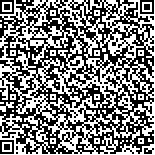| 引用本文: | 吴利红,邓弘仙,张云惠,黄玲,范诗逸,蒋海静,赖翼,罗兴燕,刘阳,杨淑霞.伪石蒜碱抑制活化T细胞增殖与功能的机制研究[J].中国现代应用药学,2020,37(15):1818-1824. |
| WU Lihong,DENG Hongxian,ZHANG Yunhui,HUANG Ling,FAN Shiyi,JIANG Haijing,LAI Yi,LUO Xingyan,LIU Yang,YANG Shuxia.Study on the Mechanism of Pseudolycorine Inhibiting the Proliferation and Function of Activated T Cell[J].Chin J Mod Appl Pharm(中国现代应用药学),2020,37(15):1818-1824. |
|
| |
|
|
| 本文已被:浏览 46979次 下载 20780次 |

码上扫一扫! |
|
|
| 伪石蒜碱抑制活化T细胞增殖与功能的机制研究 |
|
吴利红1, 邓弘仙1, 张云惠1, 黄玲2, 范诗逸2, 蒋海静3, 赖翼3, 罗兴燕4, 刘阳4, 杨淑霞4
|
|
1.成都医学院药学院, 成都 610500;2.成都医学院临床医学院, 成都 610500;3.成都医学院检验医学院, 成都 610500;4.成都医学院科研中心, 成都 610500
|
|
| 摘要: |
| 目的 探究伪石蒜碱抑制活化T细胞增殖与功能的机制。方法 密度梯度离心法和免疫磁珠法分离纯化T细胞,抗CD3/CD28或植物凝集素(phytohemagglutinin,PHA)活化T细胞。流式细胞术检测细胞增殖、细胞凋亡、CD25表达及细胞周期;ELISA检测细胞因子IL-2、IL-6、IL-17A、IFN-γ的分泌水平。结果 伪石蒜碱抑制抗CD3/CD28或PHA活化T细胞增殖,IC50分别为(0.97±0.22)μmol·L-1和(0.82±0.07)μmol·L-1。在完全抑制活化T细胞增殖的浓度下,伪石蒜碱不诱导活化T细胞凋亡,且不对静息T细胞的细胞活力产生显著影响。伪石蒜碱不影响活化T细胞表达CD25和分泌IL-2,但阻滞细胞周期于G0/G1期。伪石蒜碱显著抑制IL-6、IL-17A、IFN-γ的分泌。结论 伪石蒜碱不影响T细胞的活化,但通过阻滞细胞周期于G0/G1期抑制活化T细胞的增殖,提示伪石蒜碱有望成为先导化合物用于开发新型免疫抑制剂。 |
| 关键词: 免疫抑制剂 T细胞增殖 伪石蒜碱 细胞因子 |
| DOI:10.13748/j.cnki.issn1007-7693.2020.15.004 |
| 分类号:R285.5 |
| 基金项目:四川省教育厅科研计划重点项目(18ZA0143);植物化学与西部植物资源持续利用国家重点实验室开放项目(P2018-KF03);成都医学院国家级、省级大学生创新创业训练计划项目(201913705049) |
|
| Study on the Mechanism of Pseudolycorine Inhibiting the Proliferation and Function of Activated T Cell |
|
WU Lihong1, DENG Hongxian1, ZHANG Yunhui1, HUANG Ling2, FAN Shiyi2, JIANG Haijing3, LAI Yi3, LUO Xingyan4, LIU Yang4, YANG Shuxia4
|
|
1.Chengdu Medical College, School of Pharmacy, Chengdu 610500, China;2.Chengdu Medical College, School of Clinical Medicine, Chengdu 610500, China;3.Chengdu Medical College, School of Laboratory Medicine, Chengdu 610500, China;4.Chengdu Medical College, Research Center, Chengdu 610500, China
|
| Abstract: |
| OBJECTIVE To explore the inhibitory effects of pseudolycorine on activated T cell proliferation and its mechanism. METHODS Human T cells were isolated and purified by density gradient centrifugation and the immunomagnetic microbeads, and activated by anti-CD3/CD28 mAbs or phytohemagglutinin(PHA). Cell proliferation, apoptosis, CD25 expression and cell cycle were detected by flow cytometry. Level of cytokines IL-2, IL-6, IL-17A and IFN-γ were measured by ELISA. RESULTS Pseudolycorine inhibited human T cell proliferation with anti-CD3/CD28 mAbs stimulation with an IC50 value of (0.97±0.22) μmol·L-1 and PHA stimulation with an IC50 value of (0.82±0.07) μmol·L-1. Pseudolycorine did not induce apoptosis of activated T cells and had no significant effect on the cell viability of resting T cells with the same concentration of inhibiting activated T cell proliferation. Pseudolycorine did not affect CD25 and IL-2 expression, but induced cell cycle arrest in G0/G1 phase. Pseudolycorine significantly inhibited IL-6, IL-17 and IFN-γ expression. CONCLUSION Pseudolycorine does not affect the activation of T cells, but inhibits the proliferation of T cells by blocking the cell cycle in G0/G1 phase. Pseudolycorine represents a potential lead compound for the design and development of new immunosuppressive drugs. |
| Key words: immunosuppressant T cell proliferation pseudolycorine cytokines |
|
|
|
|
